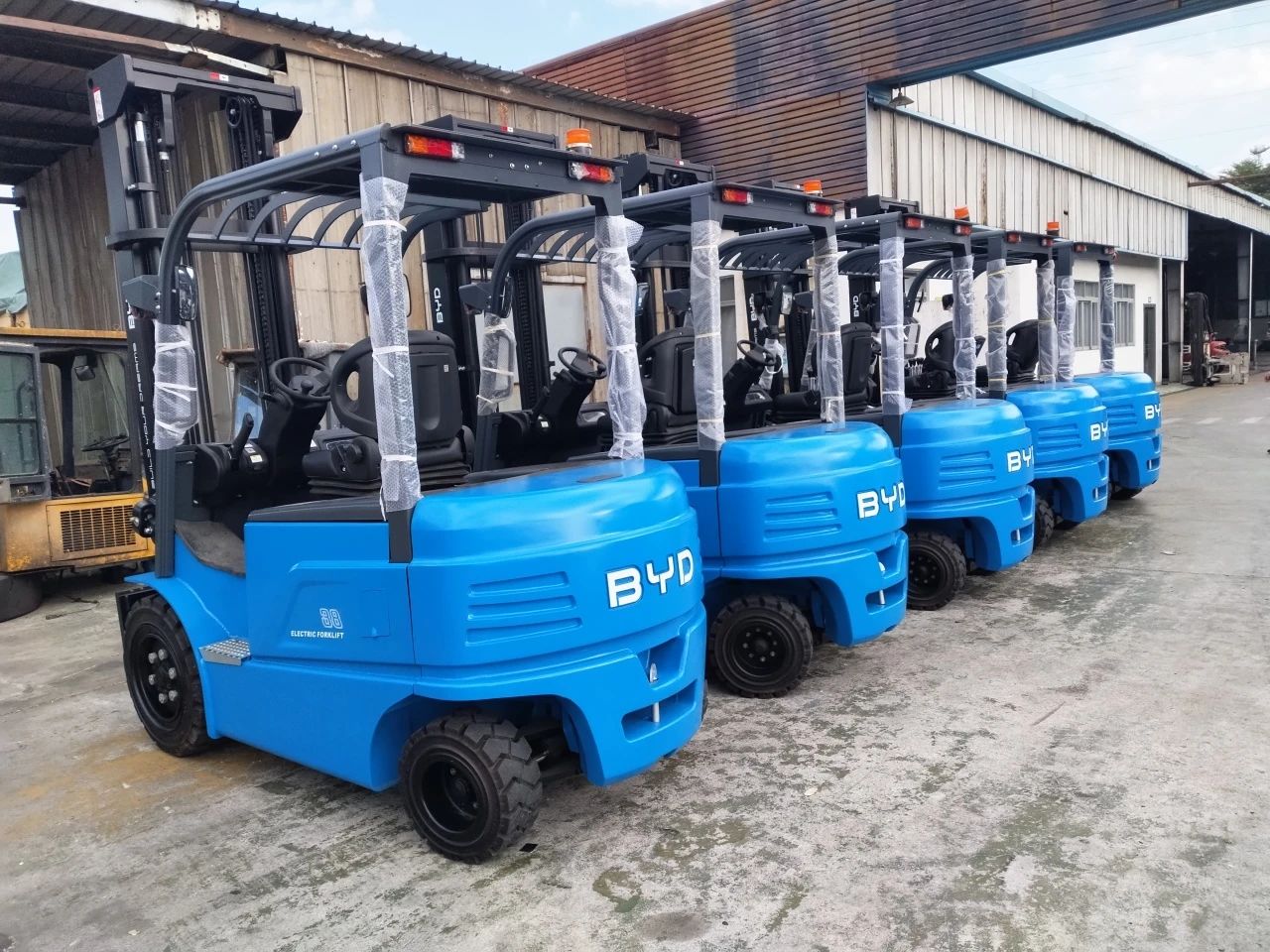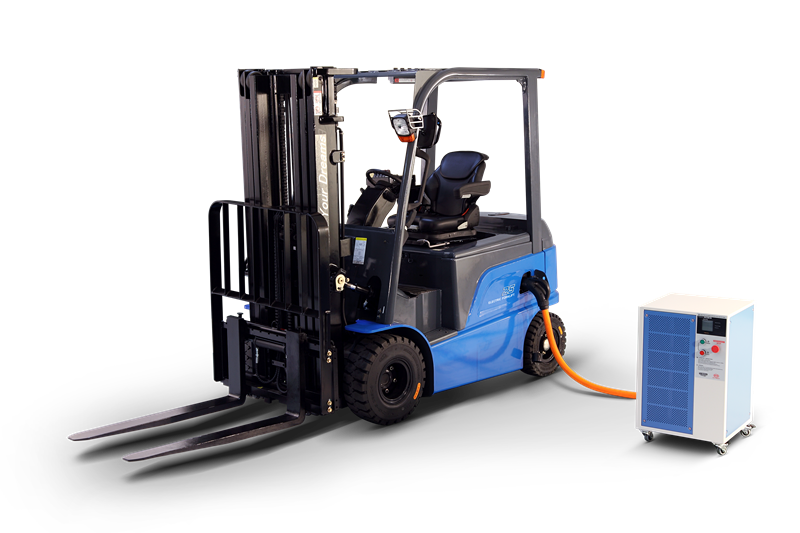Against the backdrop of the current widespread emphasis on energy conservation and environmental protection throughout society, lithium batteries, as the
most promising environmentally friendly new energy source, have increasingly gained favor in the industrial sector. Particularly in the field of forklifts, lithium
battery forklifts are gradually replacing traditional fuel-powered forklifts and are closely related to our industrial production activities. So, as enterprise users
or forklift operators, how exactly should we properly maintain the lithium batteries on lithium battery forklifts?
01. First Charge and Activation

When using a newly purchased lithium battery forklift for the first time, it should be fully charged. Even if the charger shows a green light, it is recommended
to continue charging for 8 to 12 hours to ensure the battery is fully activated.
02. Avoid deep discharge
Avoid discharging lithium batteries to a very low level (below 10% of capacity), as deep discharge can cause damage to the battery. It is recommended to keep
the battery level between 20% and 80% to prevent excessive battery depletion.
03. Charge in Time

Lithium batteries have no memory effect. Therefore, it is recommended to charge the battery after each use to maintain its activity. If the forklift is not used for
a long time, such as more than two months, it is recommended to perform a full charge on the battery; if it has not been used for more than five months, a
complete charge and discharge cycle is required.
04. Charging Environment
The charging effect of lithium batteries is affected by temperature. It is recommended to charge them at room temperature (the optimal charging temperature
is around 25℃ ± 5℃), and avoid contact with water to ensure their performance and safety. Charging in high-temperature or enclosed environments should be
avoided as high temperatures can cause the decomposition of the electrolyte in lithium batteries, resulting in the loss of active lithium, reducing battery
performance and cycle life. At the same time, outdoor work should not be carried out for a long time in rainy days to prevent rainwater from entering the
battery or charger, causing damage.
05. Correct Charging Operations
It is crucial to choose a charger that matches the lithium battery. An inappropriate charger may cause the battery protection system to fail and even lead to
safety accidents.
When charging, the charger should be connected to the battery pack first, and then the power supply should be turned on. This sequence can prevent electric
sparks caused by plugging and unplugging the plug, ensuring the safety of the charging process.
After charging, wait for a period of time before disconnecting the charger from the battery pack to avoid generating an electric arc.
06. Battery Storage and Maintenance
When the forklift is not in use, the power supply should be turned off or the battery pack removed to avoid unnecessary power consumption.
If the forklift needs to be stored for a long time, it is recommended to fully charge the battery and store it in a dry and cool place. Also, it is necessary to
replenish the battery power regularly (for example, every 30 days).
07. Regular Inspection and Maintenance
1. Regularly check for corrosion and deformation of battery terminals, wires, covers and other components, and clean and repair them in a timely manner.
2. Keep the battery surface clean and dry to avoid leakage or corrosion caused by dirt.
3. Regularly perform equalization charging on the battery to maintain its capacity and extend its service life.
08. Safety Precautions
The battery pack has a high voltage and poses an electric shock risk. When performing maintenance and servicing, it is essential to wear safety equipment
such as insulated gloves and protective glasses.
When dealing with used batteries, please follow relevant environmental protection regulations and safety operation procedures to ensure that used batteries are
properly handled.
The maintenance of forklift lithium batteries requires a comprehensive consideration of multiple aspects, including charging, discharging, storage, maintenance,
and safety precautions, etc. Only by doing these well can the performance of forklift lithium batteries be stable, their service life be prolonged, and operational
safety be guaranteed.